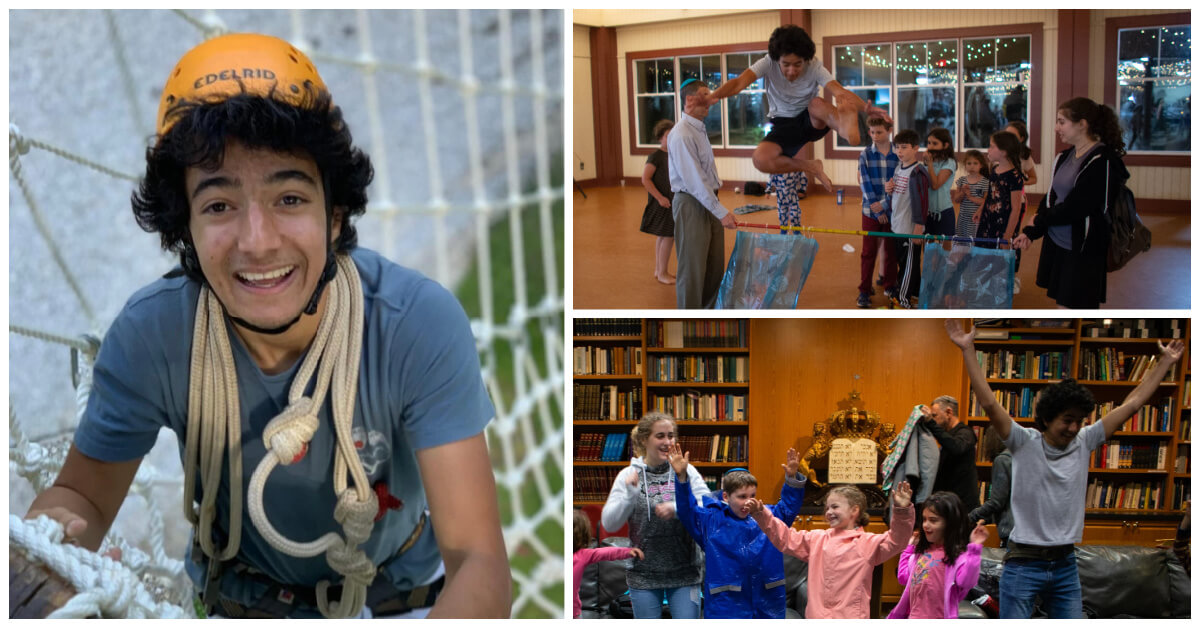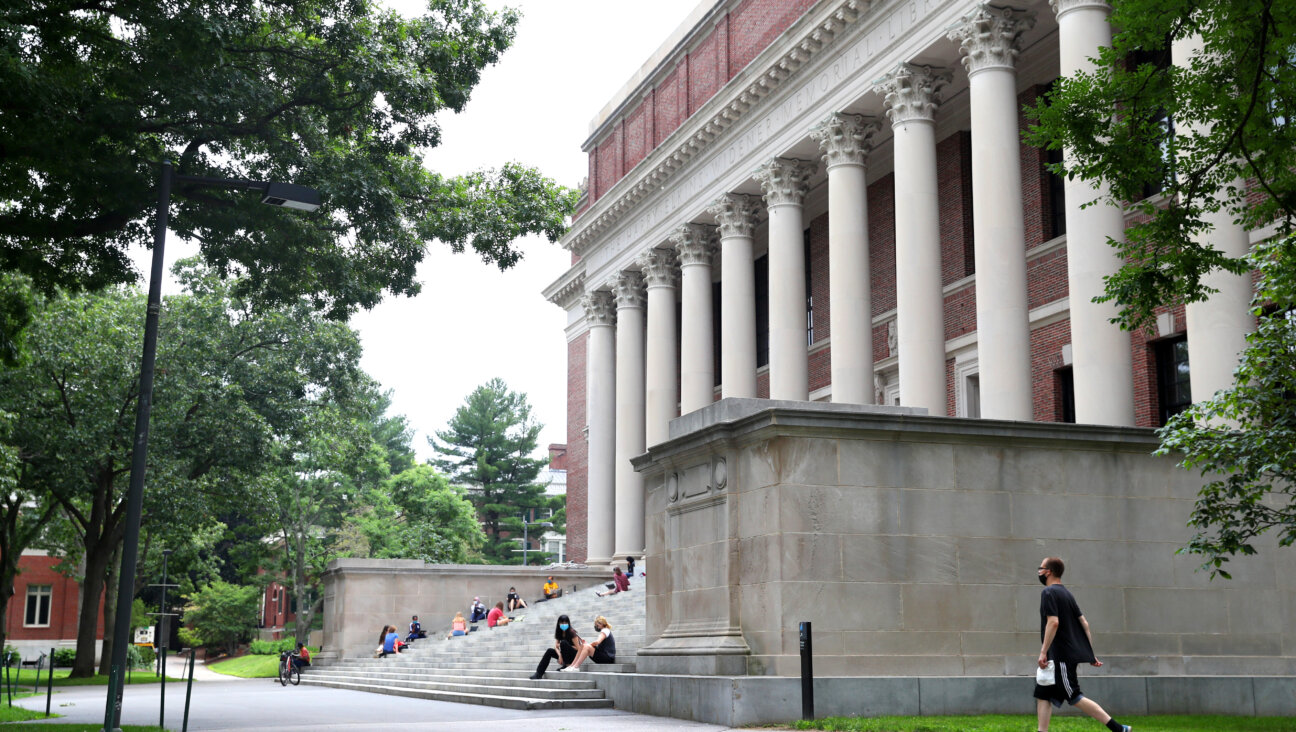A Seder That Also Tells The Story Of Labor

Glorifying Workers: The Jewish Labor Committee Haggadah is now it its fourth printing. Image by patricia simms
How was the special seventh-night Seder at the University of Wisconsin’s Hillel Foundation different from all other Seders?
Well to start with, the plague of boils became exploding landfills and destroyed wetlands defacing the earth. The plague of locusts, featuring insects traveling in a swarm? The symbol of a state public transportation system pulverized.
Traditionalists might scoff at such adaptations of the Passover meal. But some 30 battle-hardened labor activists and members of the Jewish community took to the changes without blinking as they gathered near ground zero of labor’s battle against government efforts to curb collective bargaining rights.
At the “Labor Seder” held on April 25, the traditional text was rewritten to reflect the past three months of protests against the efforts of Republican Governor Scott Walker to dilute collective bargaining rights for public employees.
“Given [Governor Walker’s] union-busting bill, given the protests and the conflict around it, we thought it was a perfect time to do a Labor Seder,” said participant Chad Goldberg, who teaches sociology at the university. “I understand it had never been done before, and we thought if there was ever a time to do one here, it would be now.”
Goldberg said the Seder was “especially important” as a tool to foster connections between the Jewish community and the labor movement during a time when labor unions and “social services the Jewish community cares about” were both under attack.
“The Seder story speaks to people of all faiths and all traditions,” said Mary Bell, president of the 98,000-member Wisconsin Education Association Council. Bell, who was raised Catholic, added, “If we haven’t learned that we must stand together and that the traditions that underlie people of all faiths lead us to the same conclusions, then we aren’t paying attention to the lessons that we’ve just been through.”
The Madison event, sponsored by the Jewish Labor Committee, was one of several Labor Seders held across the country, a new tradition that the JLC has been promoting for the past decade. This year saw Labor Seders in Boston, Newark, N.J., New York, Washington, D.C. and Houston, in addition to Madison.
For Madison, a politically liberal city of about 210,000 built around the University of Wisconsin’s main campus and the State Capitol, using a Passover Haggadah produced by the JLC was not much of a stretch.
Over the past three months, hundreds of thousands of protesters have rallied in and around Madison’s lovely white Capitol building, drawing worldwide attention to an increasingly energized American labor movement. The issues include the right of public employees, including teachers, to bargain for working conditions and benefits.
The Jewish Labor Committee Haggadah, which is in its fourth printing, uses labor imagery to enhance the traditional storytelling of the Jewish flight from Egypt. The locusts depicted as a threat to mass public transportation, for example, came from an adaptation by the family of Rachel Lerman, a UW-Madison student who attended the Seder.
“Think of our transportation system pulverized,” the family warned in its rewrite of the text. “Walker’s plan to cut funding for public transportation and rail while adding money to the state’s highway program increases pollution, places more burdens on the state’s urban communities, and transfers money to Walker’s key campaign contributors — road builders.”
Using the Passover service to highlight such explicitly liberal political viewpoints could be controversial.
But as Eli Fishman, a representative of the Chicago chapter of the JLC, insisted, “There are similar issues of oppression between workers today and the Israelites in Egypt.”
Fishman rejected the suggestion that his group’s presentation politicized a religious event.
“There’s a separation of church and state,” Fishman said. “As a religious community, we are not allowed to talk about politics in terms of politicians and issues. We are allowed to talk about worker rights and social justice and more universal issues. We’re not going to have any discussions here about a given governor or legislator.”
Of course, this was before Rachel Lerman discussed exactly that in her presentation of the Ten Plagues.
Michael Perry, director of education and employee involvement at AFSCME Council 31 in Chicago, defended Lerman’s approach, saying that Walker’s treatment of workers should be a part of the Seder discussion. “There’s enormous respect for worker rights in Judaism,” said Perry, who helped write the JLC Haggadah. “Talmudic rabbis were day laborers, so they were very sensitive to worker rights issues. That’s why we made the connections.”
Contact Patricia Simms at [email protected]
The Forward is free to read, but it isn’t free to produce

I hope you appreciated this article. Before you go, I’d like to ask you to please support the Forward.
Now more than ever, American Jews need independent news they can trust, with reporting driven by truth, not ideology. We serve you, not any ideological agenda.
At a time when other newsrooms are closing or cutting back, the Forward has removed its paywall and invested additional resources to report on the ground from Israel and around the U.S. on the impact of the war, rising antisemitism and polarized discourse.
This is a great time to support independent Jewish journalism you rely on. Make a Passover gift today!
— Rachel Fishman Feddersen, Publisher and CEO
Most Popular
- 1

News Student protesters being deported are not ‘martyrs and heroes,’ says former antisemitism envoy
- 2

News Who is Alan Garber, the Jewish Harvard president who stood up to Trump over antisemitism?
- 3

Fast Forward Suspected arsonist intended to beat Gov. Josh Shapiro with a sledgehammer, investigators say
- 4

Politics Meet America’s potential first Jewish second family: Josh Shapiro, Lori, and their 4 kids
In Case You Missed It
-
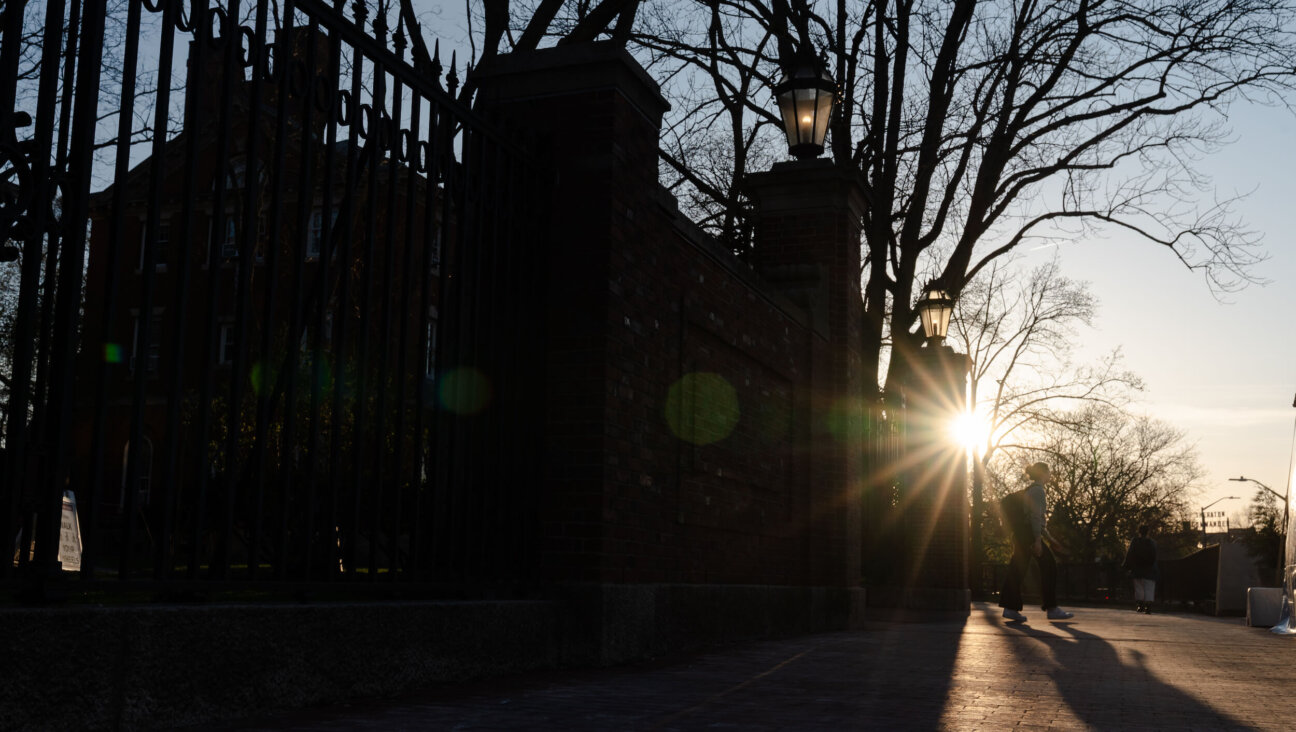
Opinion Why can Harvard stand up to Trump? Because it didn’t give in to pro-Palestinian student protests
-
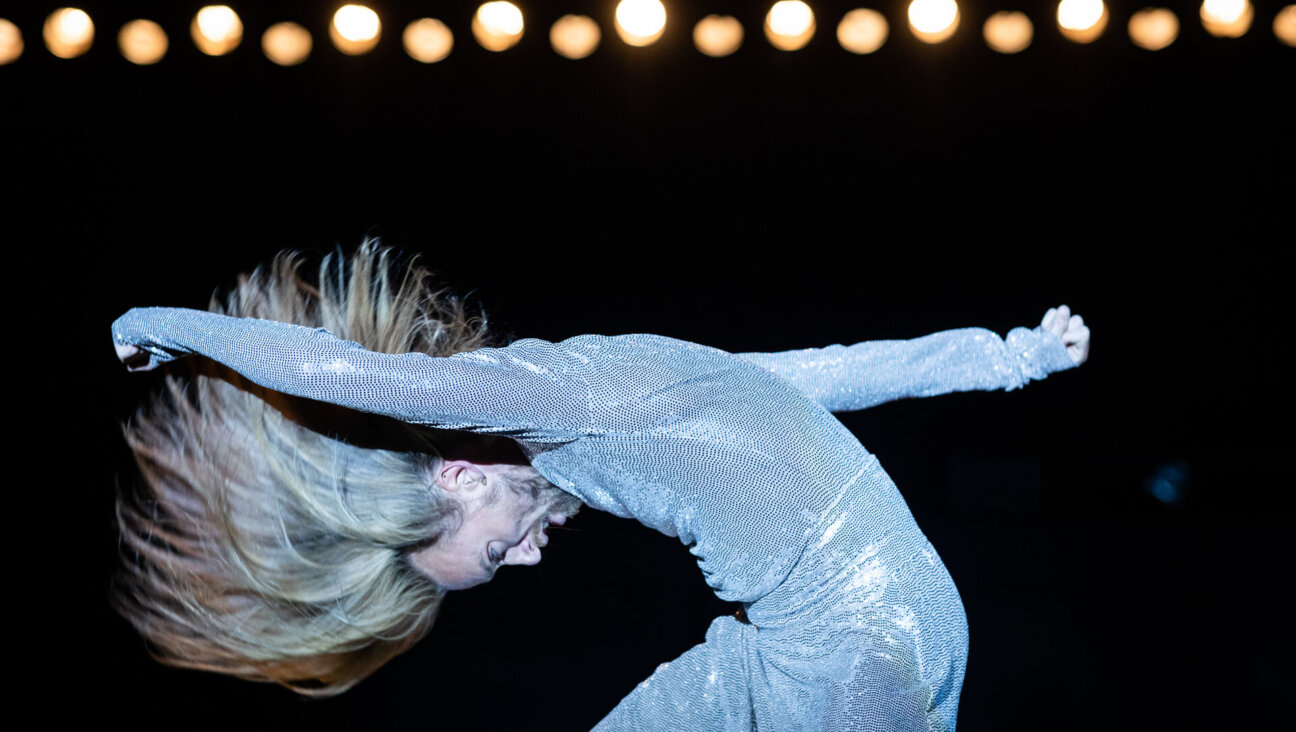
Culture How an Israeli dance company shaped a Catholic school boy’s life
-
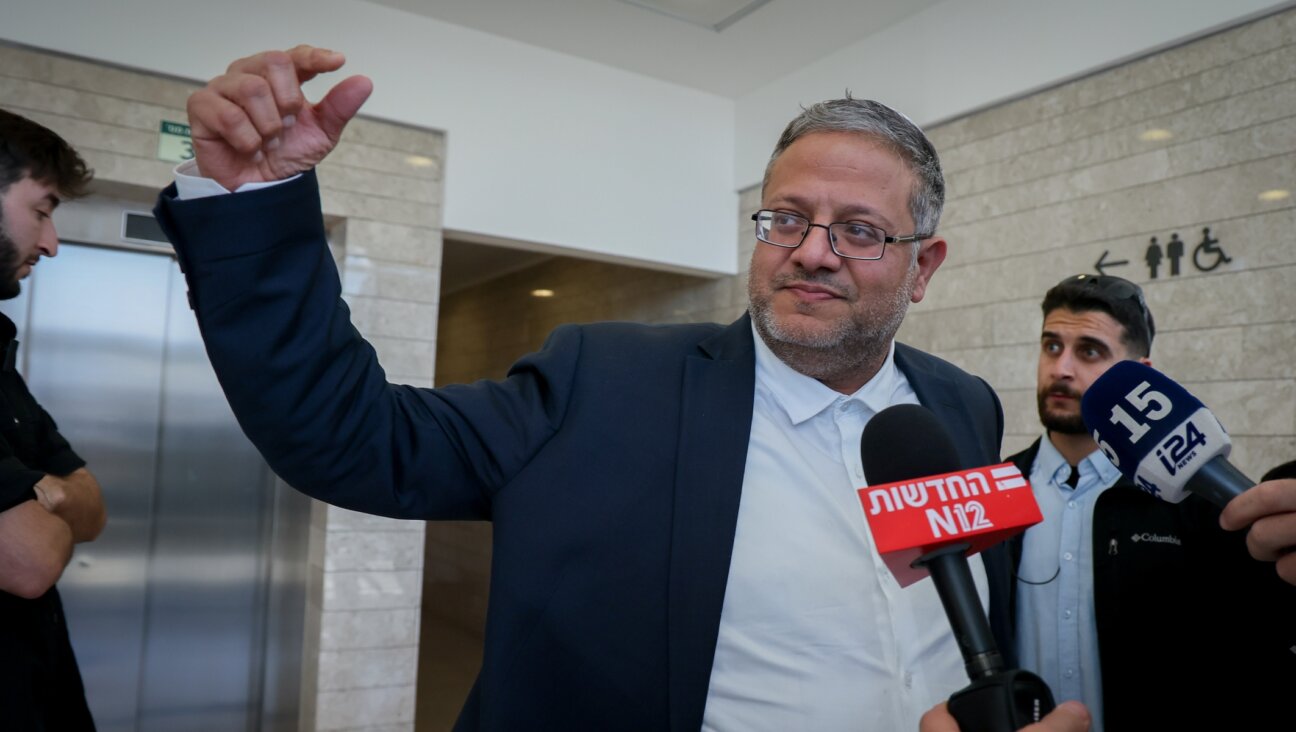
Fast Forward Brooklyn event with Itamar Ben-Gvir cancelled days before Israeli far-right minister’s US trip
-
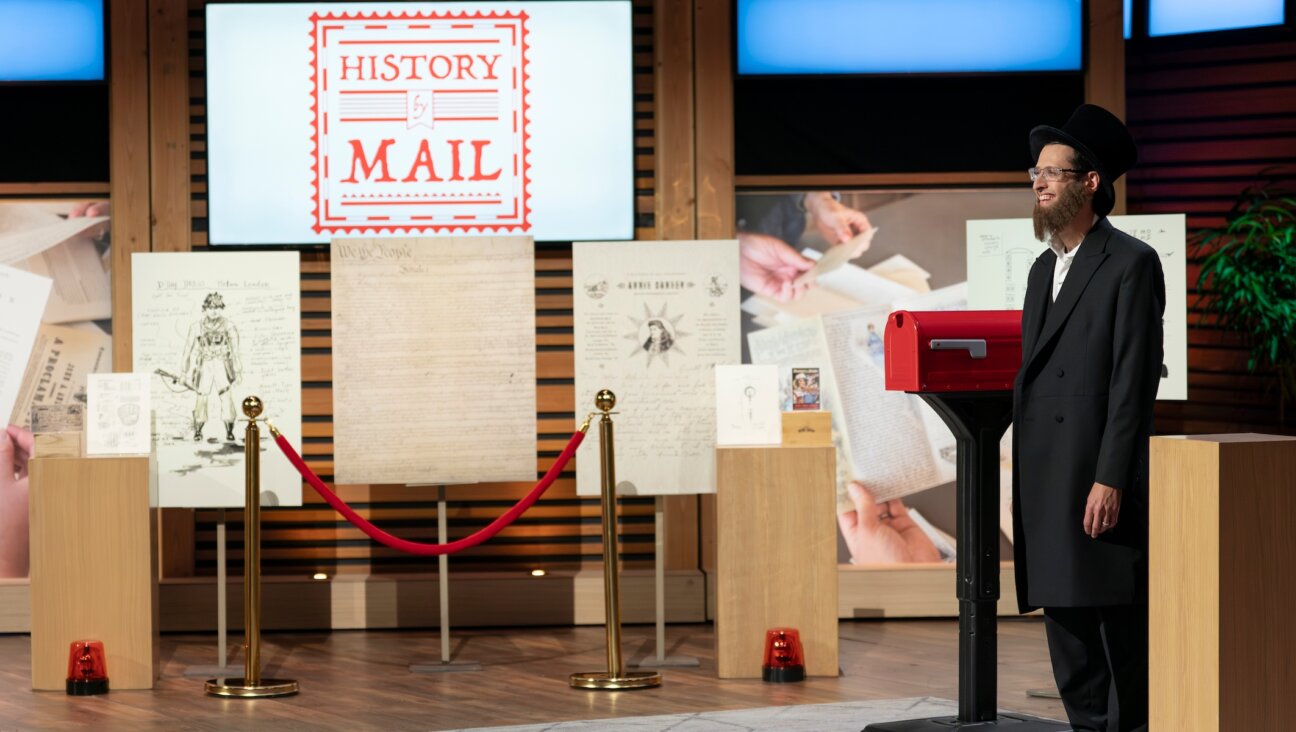
Culture How Abraham Lincoln in a kippah wound up making a $250,000 deal on ‘Shark Tank’
-
Shop the Forward Store
100% of profits support our journalism
Republish This Story
Please read before republishing
We’re happy to make this story available to republish for free, unless it originated with JTA, Haaretz or another publication (as indicated on the article) and as long as you follow our guidelines.
You must comply with the following:
- Credit the Forward
- Retain our pixel
- Preserve our canonical link in Google search
- Add a noindex tag in Google search
See our full guidelines for more information, and this guide for detail about canonical URLs.
To republish, copy the HTML by clicking on the yellow button to the right; it includes our tracking pixel, all paragraph styles and hyperlinks, the author byline and credit to the Forward. It does not include images; to avoid copyright violations, you must add them manually, following our guidelines. Please email us at [email protected], subject line “republish,” with any questions or to let us know what stories you’re picking up.





